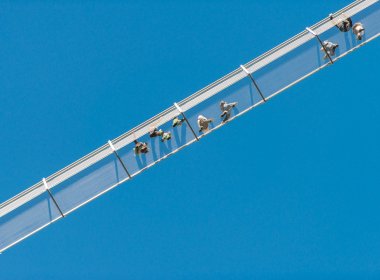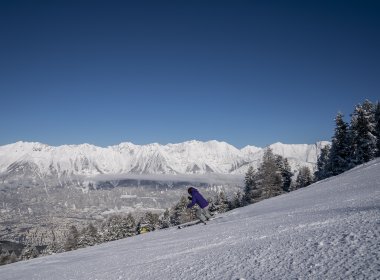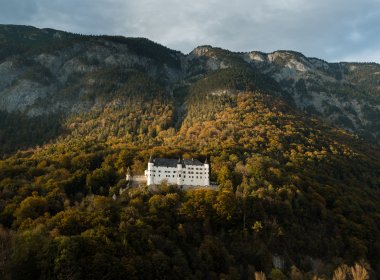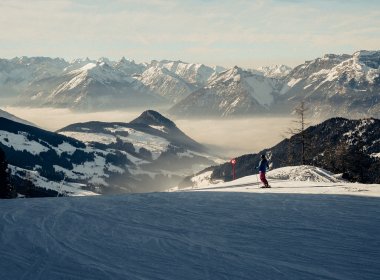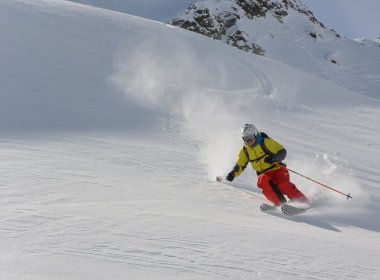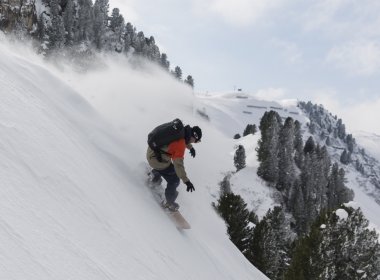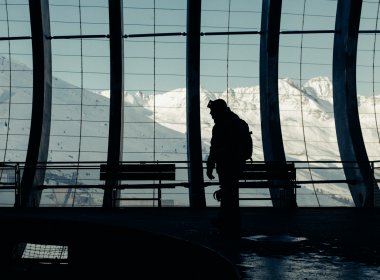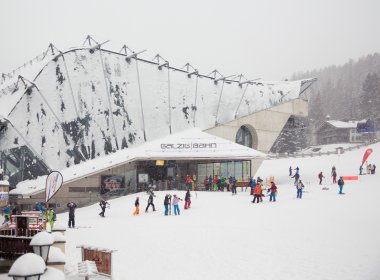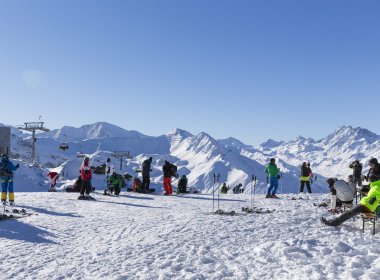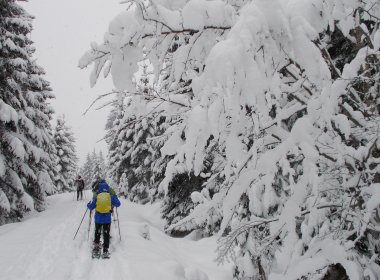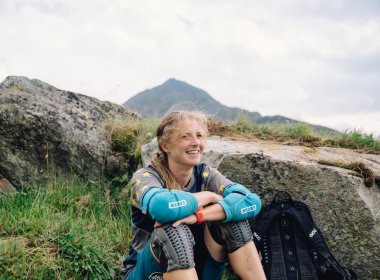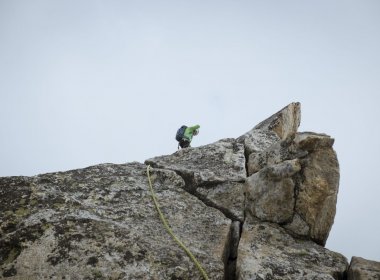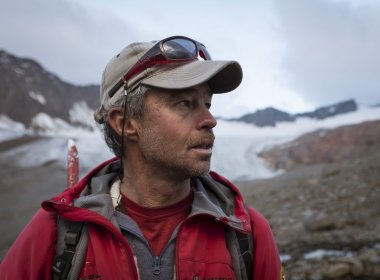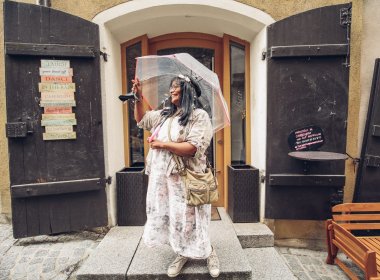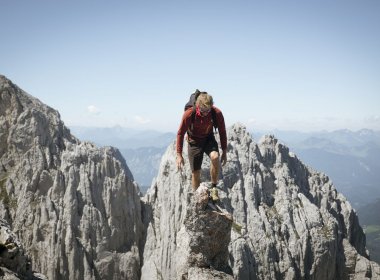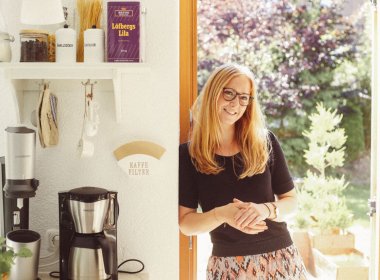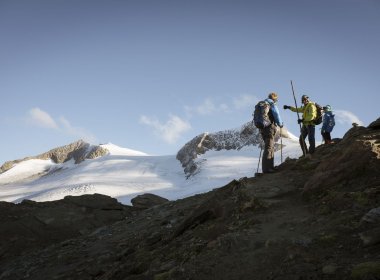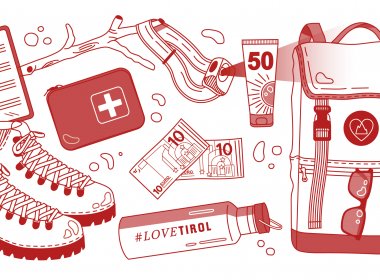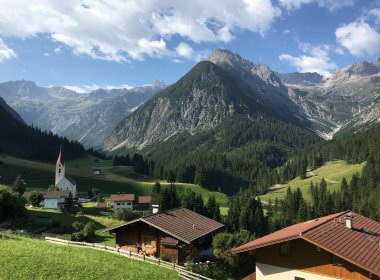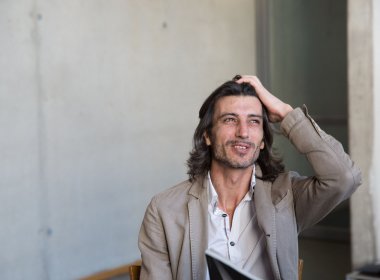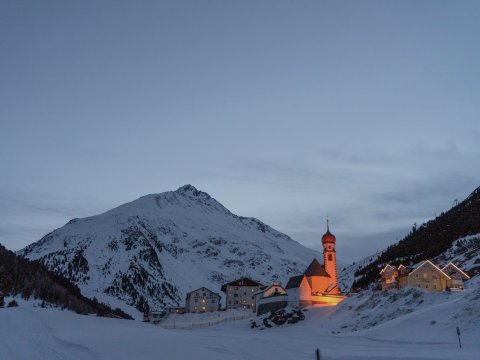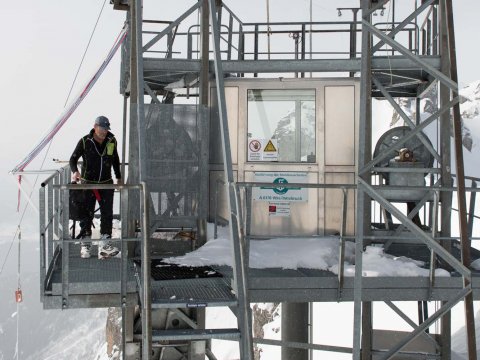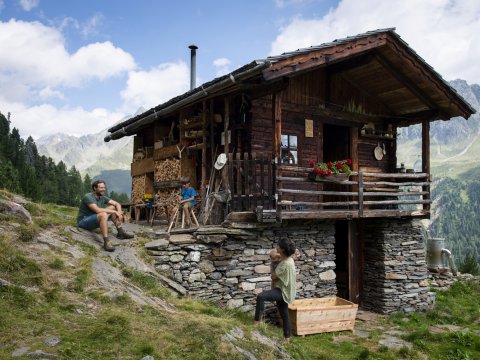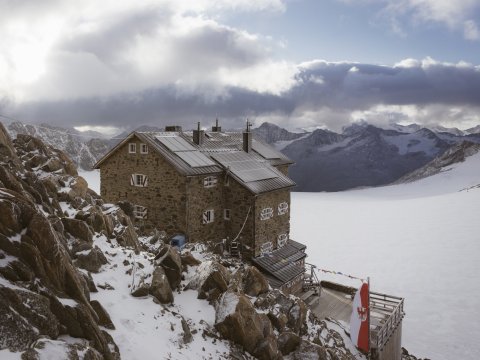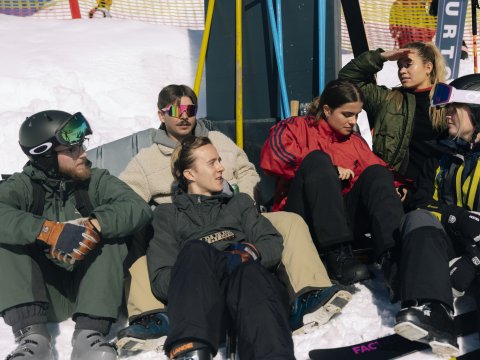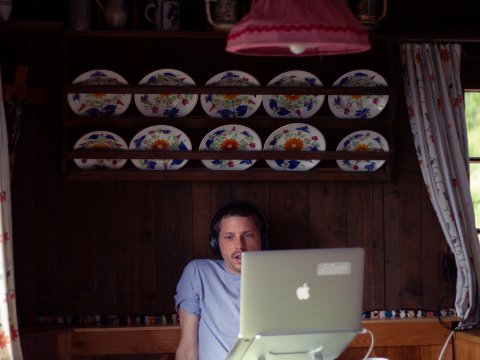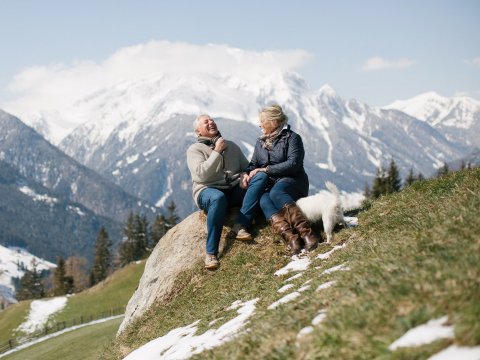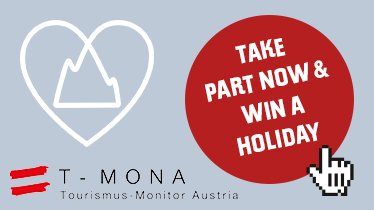One Out of 757 Thousand: How Benoît came to Tirol from France
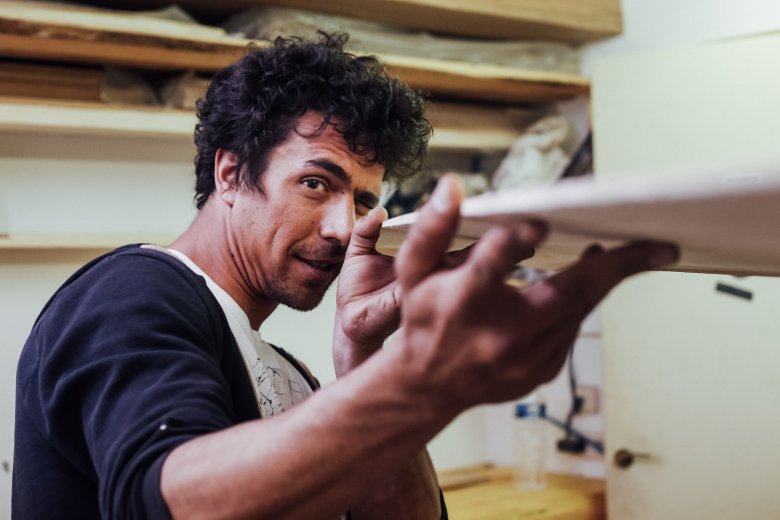
Benoît talks about board flex and wood. Ash, beech, poplar, cork. He holds a snowboard in one hand, which he has built in-house from start to finish. His other hand is running through his black, curly hair. We are in his underground workshop, somewhere in Hall in Tirol. I nod, pretending I understand what he is talking about. This man has a passion. He is building snowboards and skateboards from scratch.
„I only wanted to stay for two years.“
Actually, 31-year French Benoît Caillaud wanted to pursue a classical engineering career. He has studied mechanical engineering and material sciences in his French hometown Annecy. When he gained work experience abroad in an Austrian company, he got to know a Tirolean entrepreneur who develops aircraft parts for Airbus and Boeing. He offered Benoît a good job. Eventually, the young engineer from France moved to Tirol’s capital Innsbruck in October 2008. His job was to calculate aircraft components. “Actually, I only wanted to stay for two or three years,” says Benoît today, nine years later. “Time simply passed too quickly.”

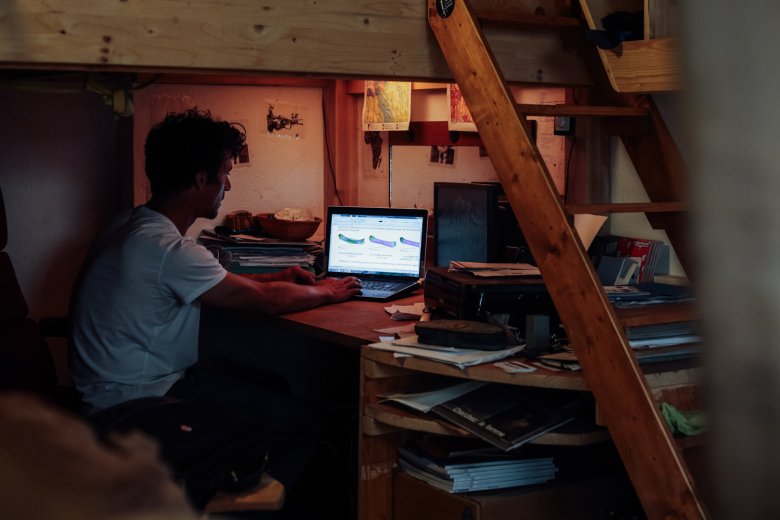
Apart from working in Tirol, Benoît continued to pursue his greatest passion, snowboarding. Which is much more easy to do here than in his old homeland. “Back home in Annecy, I had to take the car to get to a ski resort; there are no complementary skier’s shuttle buses or anything comparable. In France, outdoor adventure is not behind the front door—while here in Tirol the mountains are really on your doorstep.” Benoît had a good job in an engineering office near Innsbruck, good friends and a great time outdoors. His secret dream, however, has always been to build his own snowboards. Benoît never quit on his dream of being a snowboard builder. But it took him until the year 2010 to get there.
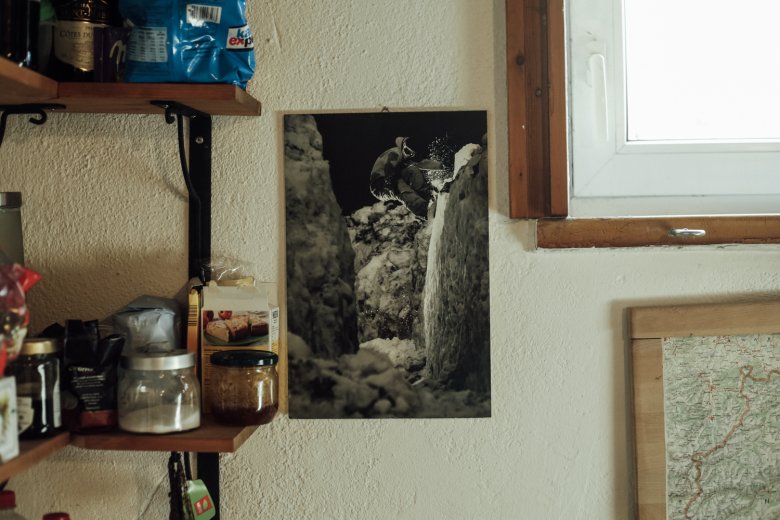
„Why wait any longer?“
I spot a black and white photograph of a snowboarder on the wall of Benoît’s workshop, frozen in mid-flight. I ask Benoît if he is the rider pictured. He answers yes and tells me a sad story. The photographer who captured this moment was a good friend of him. He died in an avalanche in 2010. His friend’s death made Benoît think about his own life. “I asked myself: if building snowboards is what I really want to do, what am I waiting for? It might be too late tomorrow. Life can be over literally in the blink of an eye. My urge to build my own boards grew stronger day by day. So this was it. Why wait any longer?”
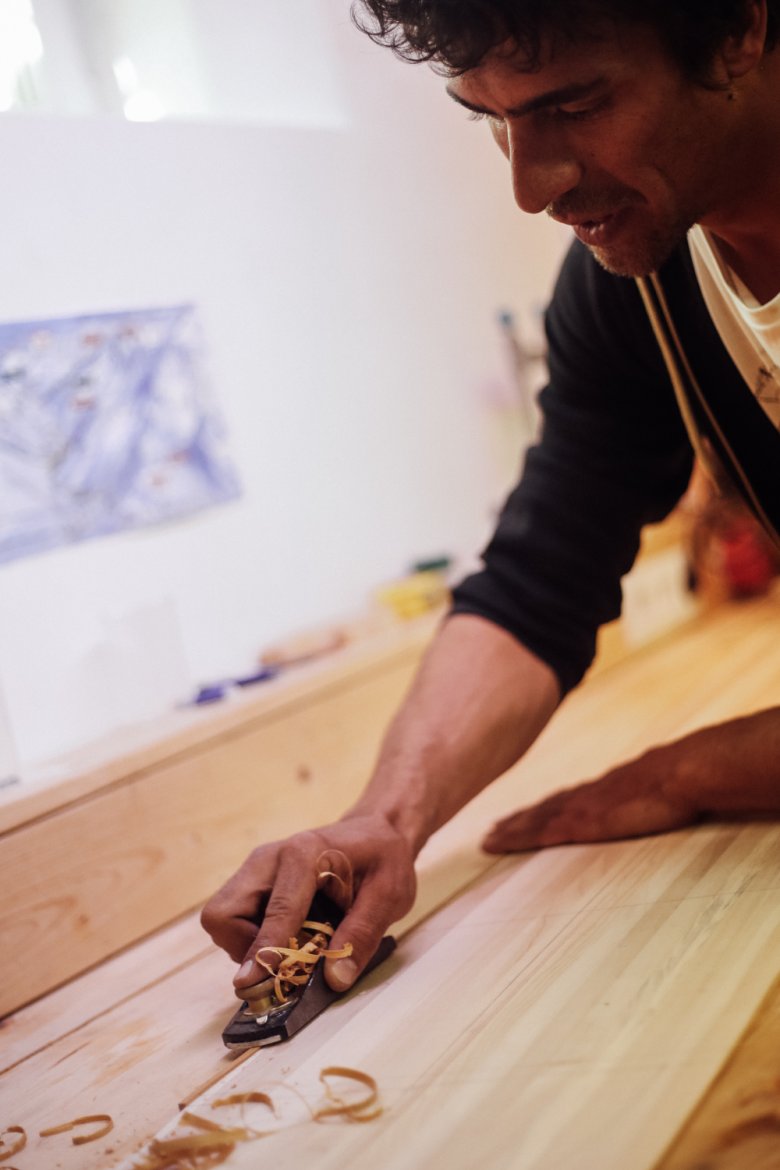

Benoît searched for a workshop and found a basement for rent in the small town of Hall in Tirol in 2011. This is exactly where I stand right now, talking to him. He builds handmade custom snowboards and skateboards and sells them under the brand name Baguette Boards. Why did he opt for ‘Baguette Boards’? Well, maybe it is kind of a small tribute to his old home, France. Apart from his family, French bread and French cheese are the only things he lacks in Tirol, says Benoît with a smile. “Some decent Reblochon, Tomme de Savoie or Camembert – that’s what I do miss somehow.” His guess is that people in Tirol don’t like this type of soft and stinky cheese. It’s only the Tirol grey cheese that can keep up with French stinky cheeses, he adds.
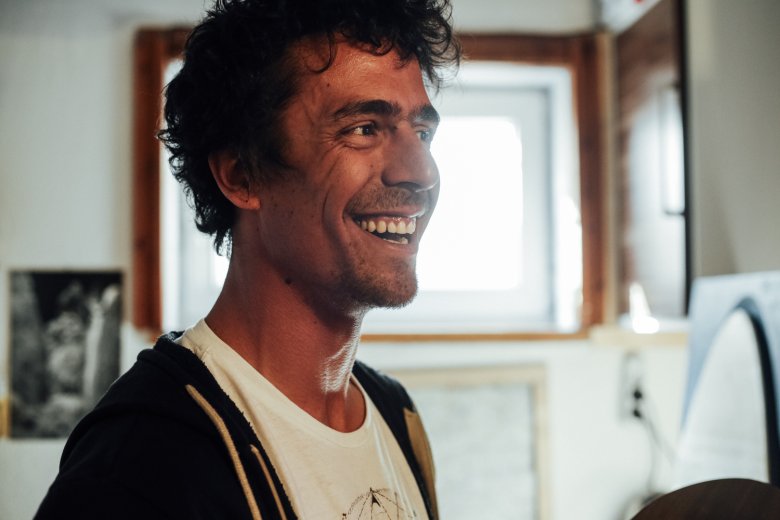

Instead of baking Baguette breads, Benoît builds rideable Baguettes. His self-made pneumatic snowboard press works with aluminium panels and an electric blanket. Most of the furniture in his basement workshop was handcrafted by Benoît, too. In an adjoining room, surfboards hang from the ceiling and snowboards and skateboards are neatly arranged on the wall. His hobbies are snowboarding in the winter, skateboarding and surfing in the summer. Surfing? “Well, yes, there are some pretty cool river surfing spots here in Tirol,” he says. But he won’t tell us where, “so those places don’t get crowded.”
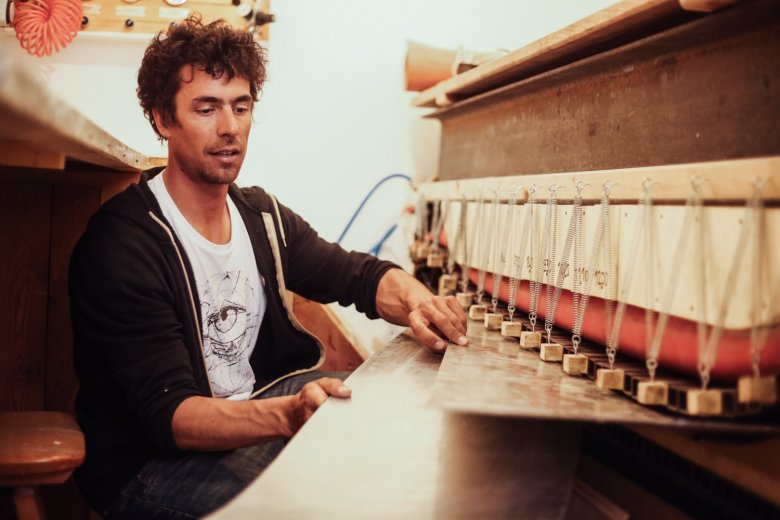
„Each town should have its own snowboard shaper.“
Surfing is a good description for Benoît’s work ethics. Rather than being an entrepreneur, he wants to be seen as part of a community, just like the worldwide surf community, he explains. “All coasts have surfboard shapers, each city has their own.” These are passionate people who design and create surfboards by hand. “There should be a snowboard community, too. There ought to be a shaper in Innsbruck, and one in Graz, and another one in Vienna. My motivation is to support the hand shaping community.”

He didn’t only want to found his own snowboard label. “My vision has always been to establish some kind of shaping community, to show people how it works. That’s how I see Baguette. I want to show others how to build their own board.” Baguette Boards was born out of the pure passion of designing and creating snowboards and skateboards and Benoît wants to inspire other people to share his passion. “I hope I will be able to make a living out of it one day, that’s my dream.” He still works for his former employer and occasionally gives snowboard lessons.
„That’s a completely different language.“
To inspire riders, he organised a snowboard event at Innsbruck Nordkette Ski Resort together with friends, where interested ones could test ride his boards. In a joint project with the Institute for Material Sciences at Innsbruck University, he tested how different types of wood determine flex and torsional stiffness. Moreover, he gave his first lecture in German language at an Innsbruck-based cultural center called The Bakery, which seems to be aptly named for a man whose business is known as Baguette Boards. “I’ve been talking in front of 100 people,” says Benoît with a big grin on his face. This was the moment when he knew that he was finally able to speak German. “And now people keep telling me that I’m talking in a weird Tirolean-French accent.” However, understanding Tirolean dialect is still a different story, in fact what locals are speaking in a Tirol country inn “is a completely different language” to him. These are the moments when he discovers that he doesn’t understand nor speak that language…

„I had his posters on my wall.“
Benoît shows me a print that depicts the town of Innsbruck, showing Landhausplatz Square and iconic Nordkette Mountain Range. If you give it a closer look, you can recognize two cat heads: A cute kitten down in town, a hissing cat up on the mountain. The artwork is by Lukas Goller, a good friend of Benoît. “Lukas is one of the artists I’m working together with. I am so glad that I got to know him.” Benoît uses prints like this to create exquisite one-of-a-kind topsheets.
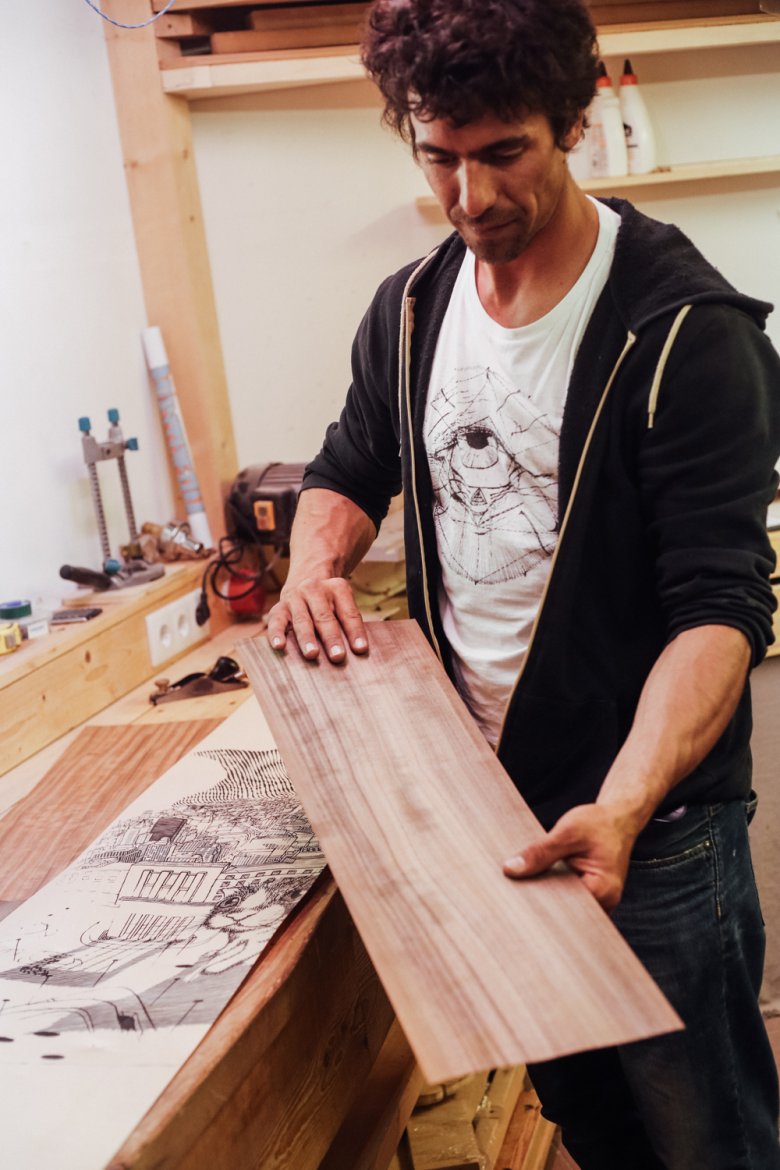
Lukas is a household name in the snowboard world. He pursued a professional snowboard career as a Nitro team rider. Benoît has known him for a long time, even though not in person: “I had his posters on my wall as a teen. I used to watch his snowboard videos. And now we are working together.”

We meet Lukas in the basement of Innsbruck-based Shirt24.at printers, where he works on his designs for T-Shirts and snowboard accessories. Among others, Lukas’ artworks were used to decorate the Innsbruck indoor skateboard park. Lukas uses the screen printing method to create unique topsheets for Benoît’s snowboards and skateboards. “A certain amount of trial-and-error was needed to find out if this method works at all,” says Lukas, “we usually use water-soluble inks.” Screen printing works by separating an image into its individual colours. A screen with a stencil for each colour is then made and ink is squeegeed through the stencil onto the topsheet material, which is 0.5 mm veneer. It’s basically the same process as for T-shirt screen printing but special inks are required. Benoît finally squeezes the printed veneers onto wood core, base, fiberglass and metal edges to form a board.
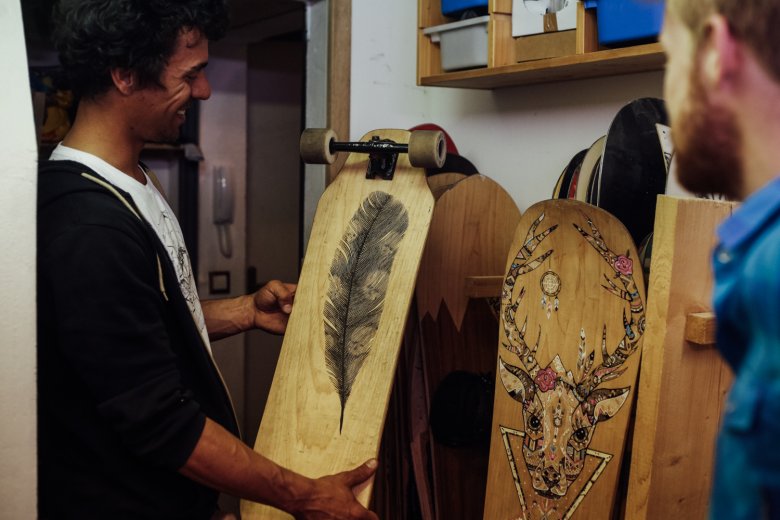


What follows is test riding—to Benoît, there’s only one real way to test his homemade boards: ride them and ride them hard, skateboards on asphalt, snowboards on snow. As a passionate splitboarder, Benoît loves to leave the boundaries of a ski resort behind, for example at Rosskogel, his favourite mountain. “I really like going up there, followed by an epic ride down. This is a super-aesthetical mountain and I like climbing it in the summer, too.”


„I don’t feel stressed here.“
Apart from the mountains, Benoît loves the quiet life in Tirol. What does this mean, ‘a quiet life’? “The people. Everyone is friendly, respectful and welcoming. I don’t feel stressed here. I’ve been to France for two weeks – only two weeks – and I really felt stressed out.” It’s different in Tirol, he says, there is more teamwork, a shared identity and a sense of solidarity. At work with artists like Lukas, or elsewhere. As an example, he tells me about a Farmer’s Store in the small village of Ranggen. It is open 24/7, “you can simply go there and there will be no shop assistant. You go and get your milk, cheese, sausages and leave the money in the box.” That’s what he likes about living in Tirol, this confidence and trust in people. “I trust you, and you trust me, and we both win.” The stubbornness of some people here is what he doesn’t like that much, says Benoît. “It’s really hard for some people here to say: I’m sorry, that was my fault. I think there are people who would never ever say: I am weak.”
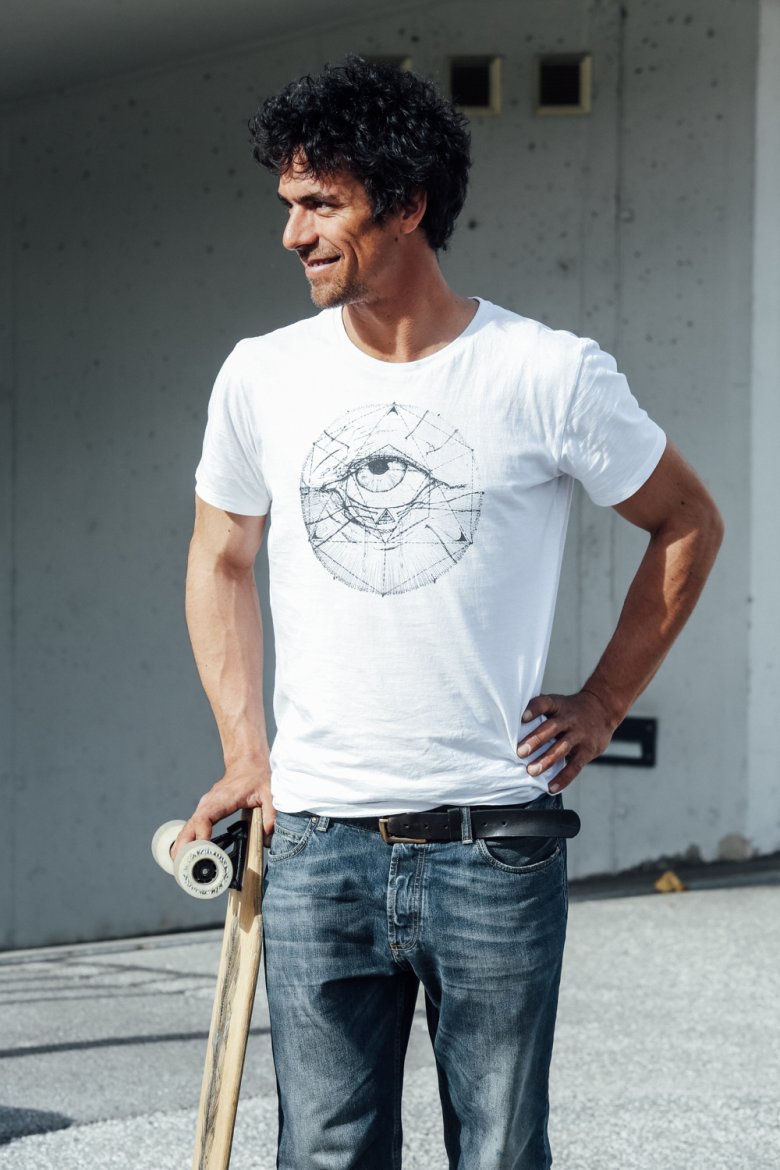
There is something about Tirol that made him more relaxed, calmer, says Benoît. If he had children, what would you tell them, is my final question. What is his code to living a good and happy life? “When you do have a passion, do it 100 percent. There is no compromise. It’s fun and it makes you feel alive. Try to find a way to make a living out of it. I think that’s how to live a happy life, isn’t it?












